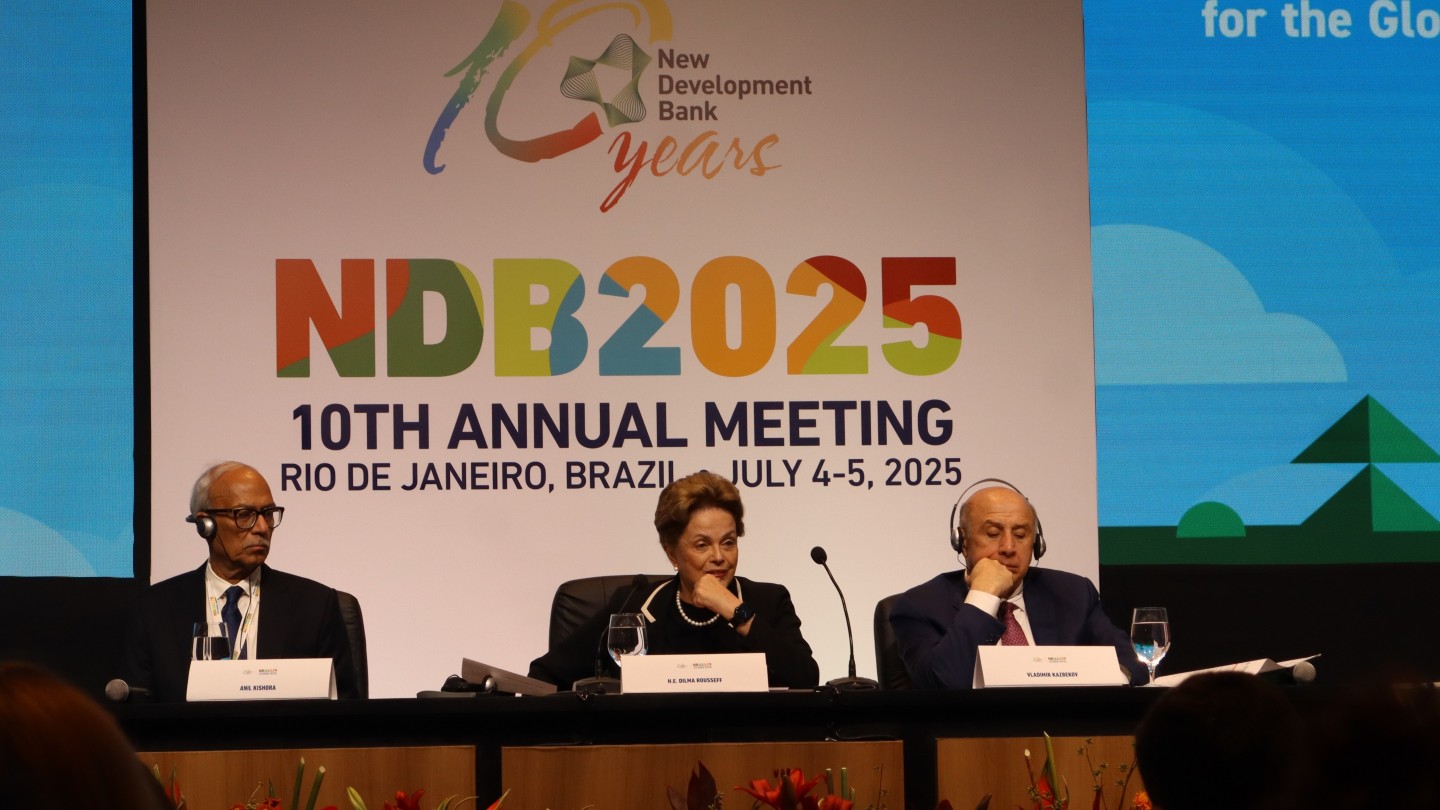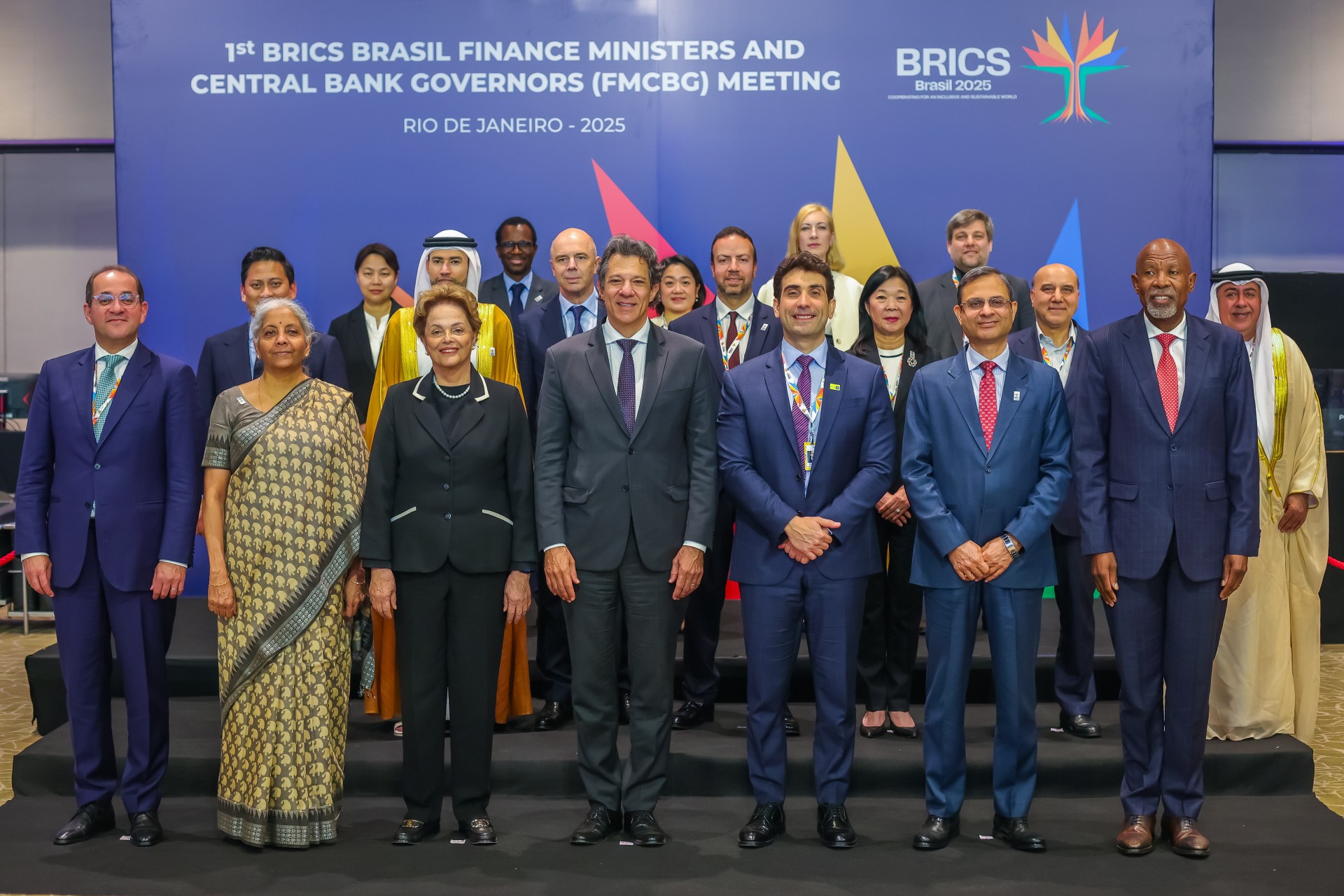BRICS Bank welcomes new members and calls for a “sustainable reglobalization”
New Development Bank celebrates its ten-year anniversary and pledges to boost investments in the Global South, while also calling for the continuation of global governance reforms

The second and last day of the 10th Annual Meeting of the New Development Bank (NDB), on 5 July, was marked by the accession of two new members and by calls for a “sustainable reglobalization” as well as “a more representative IMF”. The statements in question were issued by Dilma Rousseff, NBD’s President, and by Fernando Haddad, Brasil’s Minister of Finance.
The day before the BRICS Summit, the ten-year anniversary of the so-called “BRICS Bank” was marked by a meeting in Rio de Janeiro, in which NDB’s Board of Governors approved the accession of two new members: Columbia and Uzbekistan. This brings the group’s membership to 11: Brasil, Russia, India, China, South Africa, Bangladesh, United Arab Emirates, Egypt, Algeria, and the two new countries. The expansion of the BRICS Bank’s membership is taking place alongside the enlargement of the broader grouping of emerging economies. In other words, not all NDB members are part of BRICS.
NDB President Dilma Rousseff highlighted that the accession of the two new members was aligned with the Bank’s priorities, which also include financing and fundraising in local currencies as well as investing in infrastructure. One of NDB’s strategies consists in providing 30% of its financing in local currencies between 2022 and 2026. According to the President, these actions consolidate the bank in that they are “from the Global South and for the Global South”.
Greater Representation

In a speech to Finance Ministers and Central Bank Governors of BRICS countries, Finance Minister Fernando Haddad stated that negotiations were under way for a document entitled “Rio de Janeiro’s Vision for the IMF”. The aim is a joint endorsement by representatives of Global South economies for a “more representative International Monetary Fund (IMF).”
The draft document in question is part of ongoing discussions among Global South countries seeking to obtain greater representation in international councils and forums. The debate began at the G20 Summit last year, also under the Brasil’s presidency, when a document calling for reform of global governance in various sectors was unanimously approved by the world’s 19 largest economies, the European Union, and the African Union.
At the United Nations Security Council and Secretariat, for instance, the reform proposes the inclusion of more women and more countries from Asia, Africa, Latin America, and the Caribbean. It also suggests the creation of a 25th seat at the IMF to represent Sub-Saharan Africa.
In line with the global governance reform agenda, the Minister’s speech also referred to “sustainable reglobalization.” According to him, this would represent a new phase of globalisation based on equitable human development in social, economic, and environmental terms. The proposals include:
Facilitating trade and investment among BRICS countries;
Strengthening coordination on international monetary and financial system reforms;
Promoting intra-BRICS dialogue on public-private partnerships, taxation, and customs, with special attention to the taxation of ultra-high-net-worth individuals;
Promoting The Tropical Forest Forever Facility, a climate financing model that rewards countries with tropical forests that work to preserve them. BRICS would work in partnership with the Brazilian presidency to launch this proposal at COP30.
The BRICS Summit also discussed issues related to the presentations made at New Development Bank’s 10th Meeting. This summit, which brought together BRICS member countries, took place on 6 and 7 July in Rio de Janeiro. Brasil will continue to hold the presidency of the group of emerging countries until 31 December 2025.
By Everton Victor and Julia Lima.
Content originally published by UERJ’s Scientific News Agency (Agência de Notícias Científicas, Agenc).
English version: Enora Lessinger (POET/UFC)
Proofreading: Milchel Emmanuel Félix François (UFC)